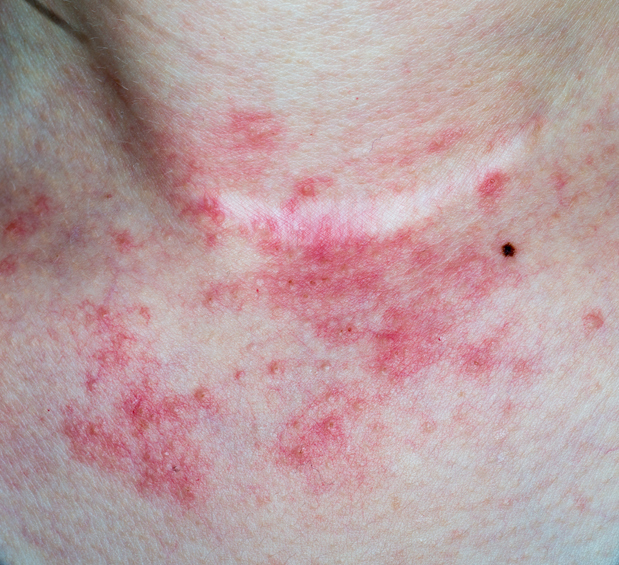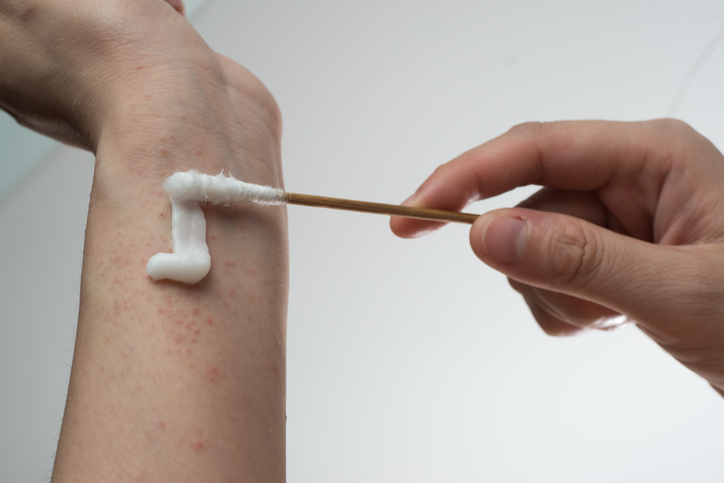Pain
Progression and Potential Complications of Eczema

What is eczema?
Eczema is the medical term used for a group of health conditions characterized by inflamed, irritated, itchy patches of skin. It can develop at any age, and approximately one in 10 people will develop some type of eczema in their lifetime. It is generally a chronic (long-term) condition that involves periodic flare-ups; however, it can also be acute (short-term).
There are various types of eczema. However, atopic dermatitis is the most common form, and the two terms are often used interchangeably.
What are the stages/categories of eczema?
Eczema is categorized into three stages:
- Acute eczema involves red, weepy patches of skin. It most often occurs from contact with an irritating substance. It is usually short-term, taking only a few weeks to heal.
- Subacute eczema presents as dry, red, itchy and scaly skin. With treatment, the skin may heal, or the eczema may become chronic.
- Chronic eczema typically develops in very young children, but it can develop at any age. It often involves flare-ups interspersed with symptom-free periods. Recurrent flare-ups can cause the skin to thicken.
What are the potential complications of eczema?
As eczema progresses, complications can develop. Many complications of eczema develop from scratching itchy skin. Scratching damages the skin’s surface, making it more susceptible to infection from bacteria, viruses and fungi. Potential complications of eczema include the following:
- Scars may develop in affected areas. These scars may be especially prevalent on dark skin.
- Scalp issues, including dandruff, damage to hair follicles, or hair loss, may occur.
- Furuncles, otherwise known as boils, can develop in affected hair follicles due to bacteria or fungi.
- Impetigo is a common and highly infectious staph infection that can develop in open, weepy skin.
- Cellulitis, a bacterial infection that gets deep into the skin, can develop from skin irritation. Cellulitis may require hospitalization for administration of intravenous antibiotics.
- Eczema herpeticum is caused by the herpes simplex 1 or 2 virus. It causes painful blisters that break open and develop crusts. It is spread from skin-to-skin contact. Skin affected by eczema is more susceptible to infection, so the risk of getting eczema herpetium increases if another type of eczema is present.
- Molluscum contagiosum is an infection caused by the poxvirus and produces itchy, inflamed, white- or flesh-colored lesions. Because eczema causes issues with the skin barrier, the skin is more susceptible to infections, including molluscum contagiosum.
- Septicemia can develop when a bacterial skin infection gets into the bloodstream; it is extremely dangerous and requires immediate emergency attention.
- Neurodermatitis can develop as a result of the itch-scratch cycle of eczema.
- Sleep issues often occur as itchiness causes individuals to wake.
- Mental health issues, such as anxiety or depression, may develop due to the stress of dealing with eczema.
Early identification of eczema and adequate treatment can help prevent progression and potential complications of the condition.
For more information about eczema, check out the National Eczema Association’s website at www.nationaleczema.org.
















